Understanding Our
Doula Code of Ethics
The goal of Doulaing The Doula’s Code of Ethics is to offer guidelines for situations you will face on a regular basis. We want to empower you to make the best decisions you can in any situation while observing our shared core values.

Relationships To Clients and Careproviders:
The DTD birth doula is a paraprofessional and works alongside medical professionals in caring for the pregnant, birthing, and postpartum client.
The DTD birth doula strives for maximum autonomy of their client at all times.
The DTD birth doula strives to encourage communication between careprovider and client whenever possible. The doula focuses their efforts so their client’s preferences, feelings, and decisions are communicated effectively to health care providers.
The DTD birth doula strives to encourage cooperative decision-making between careprovider and the birthing person or client whenever possible. When that is not possible, it is appropriate for the doula to advocate directly to the medical care providers on behalf of the client.
The DTD doula shall provide accurate and timely information to the pregnant and birthing client.
The DTD doula does not give medical advice or make decisions for the client.
The DTD doula seeks to maintain client and careprovider confidentiality at all times. The doula recognizes that it is the client’s major life event and it is their choice to share any information.
When seeking support from others, the DTD doula shall take time to discern what confidential details are really necessary to share and think carefully about where and whom to ask for advice.
Autonomy of the Doula’s Role:
DTD doulas provide comfort measures autonomously but consult with medical professionals before doing an intervention. Recommending commonly available exercises during pregnancy is considered a general wellness practice and does not need medical consultation (unless the client requests this or has a medical condition affected by their position).
DTD doulas may implement an intervention during labor after explicitly consulting with the client and a member of their health care team. The responsibility is then shared by the doula, client, and medical staff member.
Before using any comfort measure or intervention with a client, DTD doulas shall ensure they are educated about the pros and cons of the intervention and when it is recommended and when it is not recommended.
Rationale: A comfort measure is designed to lessen discomfort and enhance coping.
Comfort measures are benign, only minor problems can result from using a comfort measure incorrectly. An intervention is designed to obtain a specific result. Interventions may cause unintended consequences. Intention matters, as the same strategy can sometimes be a comfort measure and at other times be an intervention.
Comfort Measure |
Intervention |
|---|---|
| Minor problems result from doing it incorrectly | Unintended negative consequences can result from doing it incorrectly |
| Designed to enhance coping and lessen discomfort | Designed to get a specific result |
| Ex: aromatherapy to get rid of a bad smell | Ex: aromatherapy to stimulate urination |
| Ex: abdominal lift for general back pain | Ex: abdominal lift to change the baby’s position (usually with pelvic tilt) |
| Ex: knee chest position to address prodomal labor discomfort | Ex: in active labor, knee chest position to change baby’s position |
Doulas do not use clinical skills such as assessing cervical dilation or taking fetal heart tones at any time. Doulas may assist the client in taking their own blood pressure or other assessments at home.
If the doula possesses clinical skills as a midwife, nurse or student, the client and health care professional need to negotiate whether they wish the doula to utilize these skills. If they do, they are acting in the role of monitrice, not a doula. DTD doulas are aware that this practice changes the power dynamic between client and doula.
Doulas who are nurses, social workers, or other skilled professionals realize those standards of practice take precedence in an emergent or urgent situation. For example, doulas are not “mandatory reporters”. However, if the doula has another profession where they are mandatory reporters, that requirement supercedes the doula’s standards of practice. It is the doula’s responsibility to make clear that they have these dual roles when the client engages their services.
Responsibility to Self, Others, and Community:
The DTD doula seeks to increase their communication skills, conflict negotiation skills, and reflective practice/meditation skills for professional and personal growth.
The DTD doula recognizes that the root of caring for others is reliably taking care of one’s self. The DTD doula has strategies for self-renewal and pleasure and regularly takes time for themselves.
The DTD doula seeks to cultivate positive relationships with other perinatal professionals whenever possible.
The DTD doula is accountable for their professional behavior to the DTD organization, other doulas in their local area, and to the wider doula community at large.
The DTD doula seeks to act in integrity with themselves and the values listed here. Integrity means that what you say, how you behave, and the values you agree to are congruent with one another.
Rationale: Often doulas are tasked to make choices that require us to rank competing values. Do we speak up about an intervention that might not be necessary, or let the client feel empowered by making the choice to have the invention? Rather than there being one right answer, the individual doula must choose the most appropriate action based on that particular situation.
Cultural Competency:
DTD doulas are aware of the increased risks, barriers to care, and disparities in health outcomes faced by many marginalized communities due to systems of oppression and discrimination.
The labor of doulas is often to eliminate those obstacles. Therefore, DTD doulas need a thorough understanding of fundamental concepts related to discrimination and oppression experienced by people of color, women, individuals of diverse gender identities and sexual orientations, immigrants and refugees, and people with disabilities to provide culturally safe care.
The DTD doula is aware that all families are different. The doula is responsible for educating themselves about social and cultural differences in family customs. The DTD doula is appreciative of the diversity of individual expression and families that exist today.
When providing doula services to people of a different culture, the doula needs to understand that the client is vulnerable to unintended harm due to cultural ignorance.
Clients are the experts on their own needs, so the doula will ask pertinent, kind questions to get a better understanding of how they define support.

Where Did this Code of Ethics Come From?
In examining my research with doulas, I focused on what situations and circumstances got the best results all around – for the doula, birthing family, and health care team. Each of these ethical principles was shown to lead to better results for everyone. At this point I’ve interviewed over sixty doulas, seven nurses, and thirty parents about doula support.
Second, Janine Gardner, B.A., CBD, went over the language and helped to refine many of my ideas. Much of the ideas and language of the cultural competency section are theirs. The first two paragraphs of that section have been altered slightly from the American College of Nurse Midwives Code of Ethics.
This code of ethics is new and it is open to comment and review based on your lived experience with it. In studying ethical codes across professions, it seems the ones that work best are responsive to the needs of the people using them on a daily basis. The core of what we stand for is firm. But this document has to work for real live doulas. It also speaks for us to the medical professionals that work alongside us.
If you have questions, concerns, or comments, please bring them to us.
-Amy L. Gilliland, July 2021







